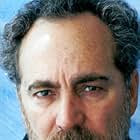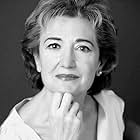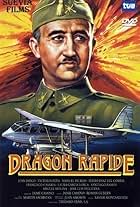- Awards
- 1 win & 1 nomination
Photos
Emilio Gutiérrez Caba
- Mateo Lesmes
- (as Emilio Gutierrez Caba)
María Rojo
- Jane
- (as Maria Rojo)
María Luisa San José
- Madre de Alfredo
- (as Mª Luisa San Jose)
Iván Fernández
- Pedro niño
- (as Ivan Fernandez)
Miguel Ángel García
- Alfredo
- (as Miguel Angel Garcia)
Näelle de Pablos
- Martina
- (as Nöelle de Pablos)
- Director
- Writers
- All cast & crew
- Production, box office & more at IMDbPro
Storyline
Featured review
¨A shadow of the cypress¨ is set in Avila , beginning of the century. 1929, Pedro, a nine-year-old boy, accompanied by his tutor, abandoned by his mother (Maria Luisa San José) enters the home of Don Mateo (Emilio Gutierrez Caba) , a self-taught teacher, who from then on will be in charge of his education. Pedro establishes an almost familial relationship with Doña Gregoria (Fiorella Faltoyano) and Martina , wife and daughter of his teacher. The appearance of Alfredo, as a roommate and study partner, will complete the circle of his affective environment. Life in the provinces, relationships with his companions and the special relationship between life and death instilled by Don Mateo, will definitely influence his future life.
Based on the first novel by Miguel Delibes, published in 1948 and awarded the Nadal Prize in 1947. It was included in the list of the 100 best novels in Spanish of the 20th century by the Spanish newspaper El Mundo. And this despite the fact that the work was not to the taste of its author, who considered it a failed attempt in his search for a personal style. The novel and film is narrated in the first person, and it is a traditional narrative in terms of path and expressive resources, which takes place partially in an Ávila not "protected" by its walls, but "enclosed" by them. The first part describes the life of the protagonist and narrator, Pedro, when he was a child. He is an orphan and finds himself in a difficult situation since his mother leaves him in charge of a teacher, Don Mateo Lesmes. He has a pessimistic view of life. Later he will meet Alfredo, his first and best friend, and things will end up getting complicated for both of them. In the second part, the protagonist has become a sailor after having studied at the university. He tries to escape the pessimism acquired by the subjective education of his teacher. On one of his trips abroad, for work reasons, he falls in love with a woman, but he must leave her, since he himself abides by her internal rules and does not allow himself the luxury of changing or disobeying them.
This is a passable and acceptable but some downbeat and slow-moving. With the entire film narrated in an objective tone, the author reveals a mystical scene for us, dominated mainly by pessimism and the sense of death. However, in the second part of the book, before the protagonist has lost all hope in friendship and love, through some acquaintances he manages to abandon his pessimism and achieve a more balanced perspective on life. Finally, the outcome of the novel implies an inevitable return to the previous pessimism . It is a thought-provoking and lyrical drama with interesting character studio of a few roles . The movie postpones the plot of the novel for 25 years to touch the Civil War sideways , which apparently interested the exiled director himself, but which does not contribute anything that could be improved to what underlies the novel. This is one of the several novels by the Vallisoletano author that have been adapted to the cinema, whose best reprentation was ¨Mario Camus' Los Santos Inocentes¨ , being Antonio Giménez Rico who made most adaptations based on the prestigious novelist Miguel Delibes, such as : ¨Retrato de Familia¨ 1976 based on Novel titled ¨Mi idolatrado hijo Sisi¨ , ¨The vote of Míster Cayo¨ based on the homonymous novel, and ¨The Rats .
The exiled film director in Mexico Luis Alcoriza made a film based on the book during the years 1989 and 1990. Luis Alcoriza, was co-scriptwriter in films from Luis Buñuel's Mexican period , and like the more well known Spanish director Luis Buñuel, Alcoriza left his home for Mexico, during the Civil War in his native land. Alcoriza also directed some films , such as : Tlayucan (1962), Paraiso (1970), El oficio más antiguo del mundo (1970) , Mecánica nacional (1972) , El muro del silencio (1974) , Fe, esperanza, caridad (1974) , Presagio (1974), Las Fuerzas vivas (1975) , and Día de muertos (1988). This La sombra del ciprés won some prizes and nominations , such as : Cinema Writers Circle Awards, Spain 1992 Winner CEC Award Best Editing José Antonio Rojo ; Goya Awards 1991 Nominee Goya Best Adapted Screenplay Luis Alcoriza.
Based on the first novel by Miguel Delibes, published in 1948 and awarded the Nadal Prize in 1947. It was included in the list of the 100 best novels in Spanish of the 20th century by the Spanish newspaper El Mundo. And this despite the fact that the work was not to the taste of its author, who considered it a failed attempt in his search for a personal style. The novel and film is narrated in the first person, and it is a traditional narrative in terms of path and expressive resources, which takes place partially in an Ávila not "protected" by its walls, but "enclosed" by them. The first part describes the life of the protagonist and narrator, Pedro, when he was a child. He is an orphan and finds himself in a difficult situation since his mother leaves him in charge of a teacher, Don Mateo Lesmes. He has a pessimistic view of life. Later he will meet Alfredo, his first and best friend, and things will end up getting complicated for both of them. In the second part, the protagonist has become a sailor after having studied at the university. He tries to escape the pessimism acquired by the subjective education of his teacher. On one of his trips abroad, for work reasons, he falls in love with a woman, but he must leave her, since he himself abides by her internal rules and does not allow himself the luxury of changing or disobeying them.
This is a passable and acceptable but some downbeat and slow-moving. With the entire film narrated in an objective tone, the author reveals a mystical scene for us, dominated mainly by pessimism and the sense of death. However, in the second part of the book, before the protagonist has lost all hope in friendship and love, through some acquaintances he manages to abandon his pessimism and achieve a more balanced perspective on life. Finally, the outcome of the novel implies an inevitable return to the previous pessimism . It is a thought-provoking and lyrical drama with interesting character studio of a few roles . The movie postpones the plot of the novel for 25 years to touch the Civil War sideways , which apparently interested the exiled director himself, but which does not contribute anything that could be improved to what underlies the novel. This is one of the several novels by the Vallisoletano author that have been adapted to the cinema, whose best reprentation was ¨Mario Camus' Los Santos Inocentes¨ , being Antonio Giménez Rico who made most adaptations based on the prestigious novelist Miguel Delibes, such as : ¨Retrato de Familia¨ 1976 based on Novel titled ¨Mi idolatrado hijo Sisi¨ , ¨The vote of Míster Cayo¨ based on the homonymous novel, and ¨The Rats .
The exiled film director in Mexico Luis Alcoriza made a film based on the book during the years 1989 and 1990. Luis Alcoriza, was co-scriptwriter in films from Luis Buñuel's Mexican period , and like the more well known Spanish director Luis Buñuel, Alcoriza left his home for Mexico, during the Civil War in his native land. Alcoriza also directed some films , such as : Tlayucan (1962), Paraiso (1970), El oficio más antiguo del mundo (1970) , Mecánica nacional (1972) , El muro del silencio (1974) , Fe, esperanza, caridad (1974) , Presagio (1974), Las Fuerzas vivas (1975) , and Día de muertos (1988). This La sombra del ciprés won some prizes and nominations , such as : Cinema Writers Circle Awards, Spain 1992 Winner CEC Award Best Editing José Antonio Rojo ; Goya Awards 1991 Nominee Goya Best Adapted Screenplay Luis Alcoriza.
Details
- Runtime1 hour 40 minutes
- Sound mix
Contribute to this page
Suggest an edit or add missing content










